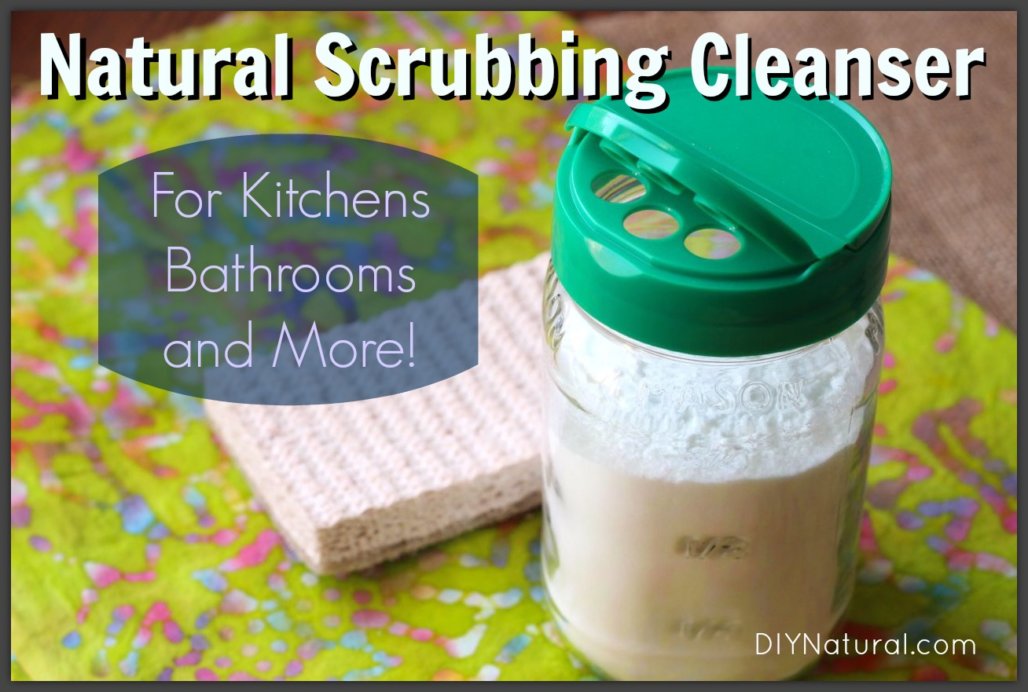
This homemade cleaning powder is similar to comet cleaning powder and is a great DIY scrubbing cleanser for tubs, sinks, toilets, and more.
My sister and I always joke that our mother only used Comet to clean all the surfaces in our home when we were younger. (It’s not entirely true, but it seemed like it at the time.) There was a green can of that powdered cleanser stored under every sink in the house.
When it became our job to clean the kitchen and bathrooms I can remember hating the scent of the commercial cleaner in the green can. Sure, it got the job done, but it stung my nose and I’ll never forget it.
I think my mom bought it because it was economical – add water and scrub. But I can think of an even cheaper way to clean surfaces around my home while deodorizing with my favorite natural scent at the same time. I combine 3 simple ingredients to make a gentle scrubbing cleaning powder that is perfect for a number of surfaces.
This DIY Comet Cleaner Works Well On
- sinks
- bathtubs
- toilets
- tile
- grout
- soap scum on shower walls
- grime & grease
DIY Comet Cleaning Powder
Ingredients & Supplies
- 1 cup baking soda (for cleaning I use the cheap stuff)
- ½ cup grated bar soap (I use this homemade cleaning bar, or this is a good store-bought option)
- 15-20 drops of essential oil(s) of your choice (find 100% pure essential oils here)
- food processor (find a good one here)
- 1 regular-mouth pint jar (find them here)
- shaker top from an old grated cheese bottle or metal mason jar lid with holes punched in the top
Directions
1. To begin making the DIY cleaning powder, grate the bar of soap until you have about ½ cup.

2. Combine grated soap, baking soda, and essential oil(s) in a food processor. (For this cleaner I like to use lemon, lavender, tea tree/mint, or eucalyptus/lemongrass, which all have antibacterial properties.) Blend in a food processor until grated soap is broken up and the mixture looks like a fine powder.

3. Transfer the cleaning powder to a glass jar and screw on the lid. Label your jar and get cleaning! (That was faster than driving to the store to buy more Comet!)

To Use
Sprinkle on surfaces to be cleaned. Using a wet sponge, work this cleanser into surfaces to create a sudsy soft scrub. Rinse well with water when the surface is clean.
Bonus Content
- How To Make Liquid Soap: Simple Process for Natural Liquid Soap!
- Homemade Toilet Bowl Cleaner Recipes For Bowl and Tank
What will you use this DIY Cleaning Powder for?
*******
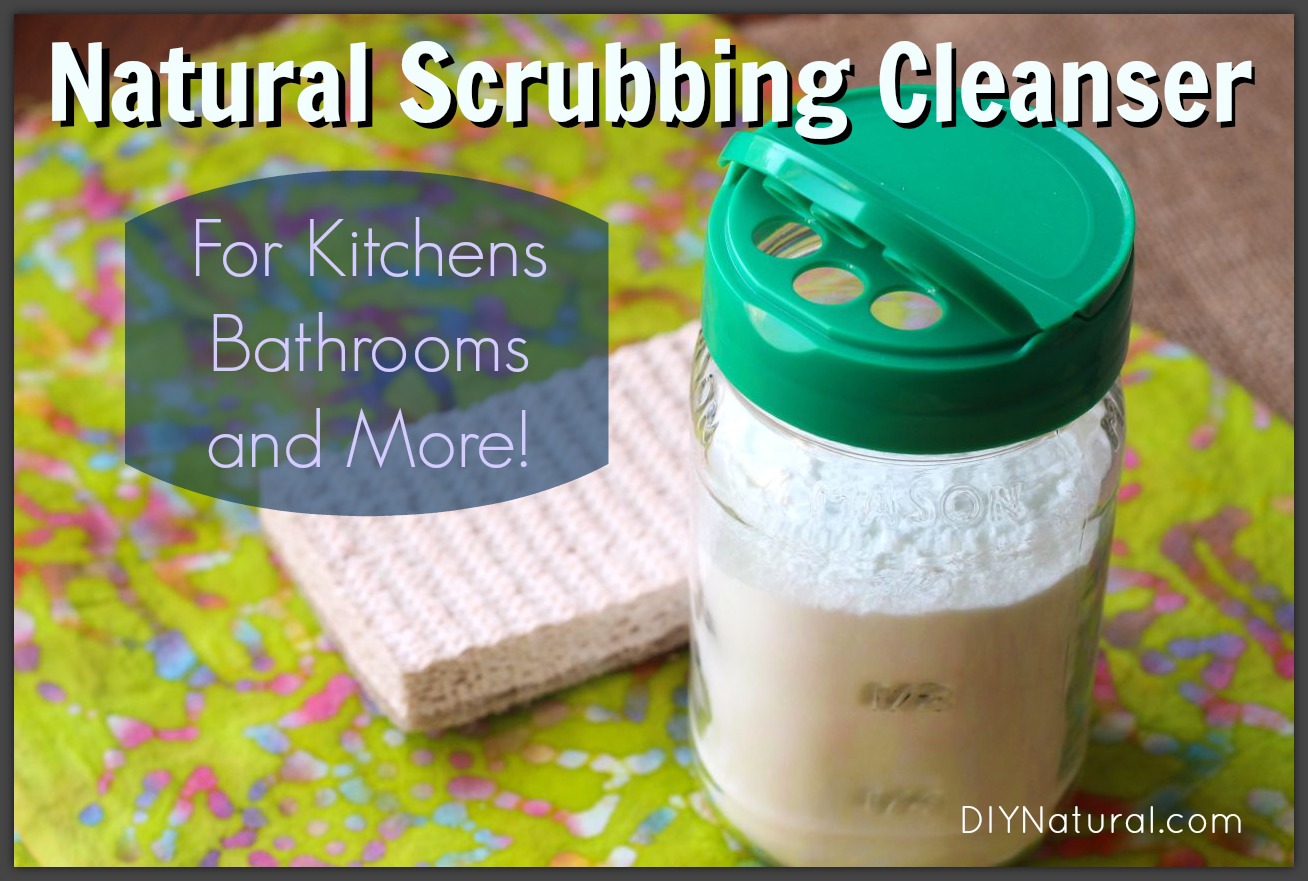
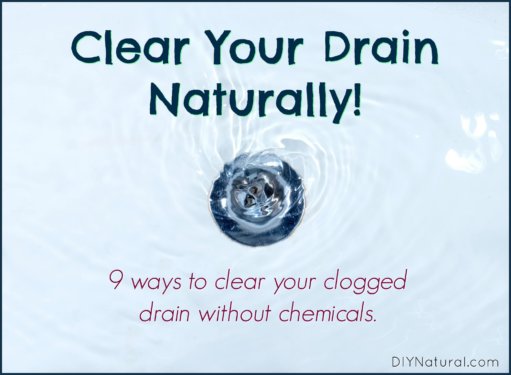
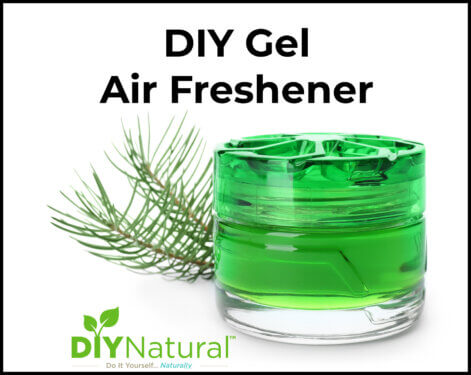
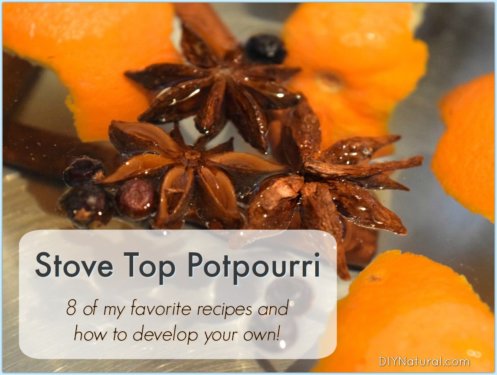
Where do I find these kind of Lids like picture above?
thanks
The green shaker lid is repurposed from an old grated parmesan cheese container.
Thanks , Betsy Jabs
Just made a batch of this scrub today and used it in both the kitchen (stainless steel sink) and bathroom (tub and granite sink) with very good results. A nice alternative to using a baking soda/vinegar combo (also works well, but since I typically have to mix it up on the spot or carry around a spray bottle of vinegar, this is easier to grab and go), and the parmesan cheese top on the pint jar is really ingenious! I’m going to try it as Kathleen mentioned on my stoneware crockpot liner, too, to see if it will remove some residue that the dishwasher didn’t get.
Oh. Vanessa, I PROMISE it will clean your crock pot!
This cleaner goes above and beyond!
Indeed it did get rid of the post-dishwasher residue on my crockpot liner! I keep finding new uses for this scrub – does a great job on tea-stained mugs (I was pretty sure it would work since baking soda is my go-to for tea/coffee stains) and on removing oily residue from a stainless steel skillet (I use and wash it daily, but that wasn’t kicking all of the grease – this did).
I’m just beginning my journey to ridding my family of all these nasty chemicals that are constantly being pushed on us and then sold to us at ridiculous prices. Anywho…is there a reason we have to use a glass jar? Could I just use the plastic grated cheese container, I kept a couple so that I could make my own REAL grated parmesan but I only need one for that and would love to reuse my other ones for this…
Feel free to use whatever container you like Monique! We just try to use as little plastic as possible in our home, and plastic can react with essential oils in some recipes, so I always opt for glass when using EOs. Congrats on your journey to more natural living and best of luck! 🙂
I have to share my wonderful testimony on this product!!!
Ok, so I burned my pork in the crockpot last night; not the actual pork, but the juices.
I soaked it in Dawn and hot water overnight; nothing. I soaked it again this morning and went to town with a hard brush, still no luck; then a knife and still nothing, and now I was convinced I’d ruined my crockpot!
Then I remembered my new DIY all purpose scouring powder, or “Comet” I made the other day.
“Hmmm, If it works on sinks maybe it would work on this!” I was sure nothing else would at this point.
Well, I tried it and within SECONDS…viola!
I’m SOOOOO thrilled!
PS…Sadly, because I was certain nothing else would work, I neglected to take the “before” photo. Trust me, the sides and edges of the bottom were caked on….cooked on…black.
(Even more sad is, my “after picture isn’t posting)
This stuff is truly amazing and I’m loving every single thing I’ve made from this awesome website!
Thanks Matt and Betsy!!!!!
Thanks for returning to post your testimony for this product Kathleen! We’re so glad it saved your Crockpot! 🙂
Do you think this would be safe to use on our pool tiles? We are getting ready to open for the season and they are a bit grimy. Thanks for posting!
I do not have a food processor but I have a Vitamix blender. Do you think this would work?
Absolutely!
Do you think it would be ok to use liquid castille soap instead of the bar and mix it to have a paste instead of powder? It seems like the essential oils would mix better that way and it would be easier than grating the bar soap. If so, would you change any of the amounts? Thanks!
Yes, you could use liquid castile soap instead of grated bar soap. I don’t know an exact amount, but you’d want to add it to the baking soda just until it formed a paste.
I have made a couple of cleaners that use grated soap in the food processor. I’ve found the fine power gets in my lungs. I wonder if this is because I microwave the bar of soap first to make it easier to grate? Do you notice any powder in the air when you make cleaners with a food processor?
No, I don’t notice powder in the air, but I don’t dry my soap in the microwave. Drying it first may be the culprit.
Thanks Betsy! I’m going to try just grating this time.
When I grind fels naptha soap in the food processor – I get the dust. Its not pleasant. I started grating the soap instead and eliminated that problem. fyi
Thanks Lee, glad to know it’s not just me. I’m so lazy but I guess grating by hand is worth it.
Wondering if this will clean scuff marks off an old white sink like the one in my kitchen. I still use commercial cleanser because of the bleach–not sure that just baking powder would get these black marks off my old sink.
Give it a shot Liz, what do you have to lose.
Blessings,
Now what is the benefit of using this combination instead of something like baking soda and a diluted vinegar mixture? I haven’t tried it yet, but I thought that Baking soda would scrub the grime off and vinegar would kill the germs thus eliminating the need for other mixtures like this.
You can use baking soda and vinegar to clean just about everything, this is just another cleaner option. Blessings.
Can’t wait to try it — now I have a use for those old Parmesan Cheese containers!
It occurred to me that, to save a little time, I could grate the soap with the food processor, then add the other ingredients for the final processing. I am going to read the oxy clean label to find out if it is safe to use for this, and if it is I plan to add it. I have a white solid surface sink that is very difficult to keep white without chlorine bleach. Thank you for this formula.
I use something similar and found that for showers and tubs, sprinkling with sea salt first really helps work in the homemade cleanser.
Great idea Chris!
Could you just add the kosher salt to the mix like we do for the dishwasher to scrub the shower? I don’t think that would scratch the plastic tub or surround. We are using soft scrub right now and it smells bad and it’s expensive! This would work great in place of that!!
I’m not sure if the kosher salt would leave small scratches or not. I would recommend mixing a very small batch and testing a small area first just to make sure. 🙂
Hi there,
Can Zote bar soap be used? I have a ton, as it’s what I use in my homemade laundry detergent.
thanks
Sure, I don’t see why not!
Love this and am using it in my home and it cleans very well! Just a side note; where do you find the great containers you have? I love this one with the lid! Just wondering.
Have a good day
Joan
The container is just an old pint-sized mason jar with the lid from an old grated parmesan cheese container screwed on. Those shaker tops from parmesan cheese containers fit perfectly on regular-mouth mason jars! Cool, huh? 🙂
Is there a reason why you use the glass jar instead of just using the plastic container the cheese comes in along with the top? With small children I prefer not to use glass.
You don’t have to use a glass jar Karen, but I prefer glass when using essential oils because these volatile oils can react with plastic sometimes. (In some cases, all it means is your container will become cloudy.) We also try to live plastic-free whenever possible, but understand that children sometimes don’t mix well with glass. 🙂
can you use fels naptha?
Sure, really any soap you’re comfortable with. If you used Fels Naptha you could even use it as a pre-treating laundry scrub on stains.
Comet is out. ha ha. But I used the oils, but did not put them together like you did. Very good I deal. In Fact wonderful idea. Hope people read this, and stop using those cos-tic chemicals.
I’ve been making my own natural cleaning products since finding your site. But I tend to still feel things are really disinfected unless I use bleach. Does this recipe kill germs like bleach? Could I add something (like Borax maybe) that would be more germ killing? Especially if I use this scrub for the bathroom.
Thanks, Rachele
Absolutely Rachele – you could add borax to this if you wish. However, this is one of the reasons I use antibacterial essential oils in mine. The oils I listed above have terrific antibacterial properties. In addition, soap (which is part of the mixture) is antibacterial. It binds to dirt, oil, and bacteria, then suspends them in the droplets of water. The bacteria, dirt, and oil can then be easily scrubbed off and washed away in this suspended state. We’re so used to seeing “antibacterial” soaps on the market, when in reality, all soap is antibacterial.
At our CPR class, we were taught that soap kills germs. So I would have to say that this cleanser does kill germs with the soap that is in it. You don’t need essential oils for that reason, unless you like the smell.
What surfaces can you use this on that won’t scratch? Granite?
Hi Brandy,
I don’t have granite at my house, so haven’t tested it on that surface yet. I use it on stainless steel, ceramic, in my fiberglass tub, grout, and sometimes a really grimy stovetop. You would use this like you would Comet, or similar products. If you would not use those on granite, then I would not recommend this DIY cleanser for your granite either.
Hope that helps!
do you have to use that many drops of essential oil? I want to start making some of my own cleaners. The oils are a bit pricey. could I use less and still get the results? thanks so much
Hi Jane, you’d be very surprised how far essential oils go. You can typically find 1oz amounts for around $10 (give or take depending on the oil) from Mountain Rose Herbs and there are approximately 700 drops in an ounce. So you could make 35 batches of this cleaner before that oil ran out, which would probably last you for the rest of your life! Hope that helps, blessings.
I don’t have a food processor, so when I make my own laundry detergent I use powdered soap from http://www.lyesoap.com. (No relation to me.) I am definitely going to try this recipe, as I have been using baking soda alone for cleaning and it doesn’t really do the job. Thanks!